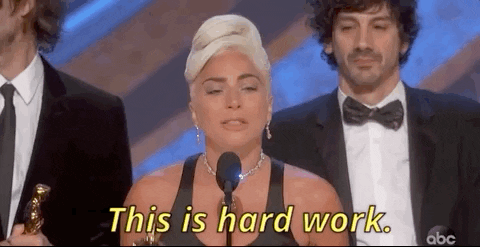Of the nine movies nominated for Best Picture, I have seen and written about eight, and, of those, not a one lacks some extraordinary measure of insight or ambition. We have had a few bumper crops in recent years, but absent—in this selection—is either the extremely well-made conventional film (like Selma or Spotlight) or a Weinsteinian Oscar grab like The King’s Speech or The Imitation Game. His grabbing days are thankfully over.

The one I missed, Ford v. Ferrari with Matt Damon and Christian Bale, is the one that might fall most neatly into those categories, but it is also the least talked-about of the contenders, which is itself a remarkable change: being talked about as an Oscar movie nowadays means being complained about as a straight-white-dude movie, which is to say a movie about what is naively considered to be a dying breed. Quentin Tarantino, by attacking that naivete head-on—though, in a weird way, also affirming it—perhaps deserves credit for drawing the fire that Green Book just stumbled into.
Alas, I feel like a trophy winner at the moment the play-off music begins to chide them offstage. (The key difference is that my orchestra is an oven timer; there are hors d’oeuvres to be made.) But an observation I would like to make now—and hopefully develop later—is that these nominees are, in the sense of ideas and worldviews, a model of pluralism—but the ways in which their ideas and worldviews both enhance and rebut one another is also a testament to how difficult pluralism is to achieve—much less to sustain. The ongoing Democratic primary season bears this out too.
I don’t wish to minimize the importance of race, gender identity, or sexual orientation as components of true pluralism, though I think we are wise to remember that we are often encouraged to take those identities personally because our theatrical and too-often impotent outrage are means by which we can be exploited to damage the project of egalitarianism. But I think we should also be mindful of how unprecedented and historic an achievement any kind of pluralism is before decrying the mission for being incomplete.
Chastising the past for not living up to ideals that are extremely difficult to achieve in the present is what I mean by “naive.” Acknowledging, however, that extreme difficulty, and the chaos it has induced and will worsen if not managed properly, considering the many divergent stakeholders that will need to be accounted for—that isn’t merely wise, it’s higher math.
Shit. I smell something burning. So on to the movies….
- The Irishman
- Jojo Rabbit
- Joker
- Little Women
- Marriage Story
- 1917
- Once Upon a Time in Hollywood
- Parasite
A few brief notes:
There was so much to say about Once Upon a Time, and its vast swaths of nostalgia—which makes it affirming to identitarian critiques—technical prowess, beauty, measured intelligence, and amazing chemistry that was squeezed out of my review because of the drop of poison in its heart.
Parasite is the only movie I got to see twice, and though I mostly stand by my original critique—like Snowpiercer, Parasite doesn’t tackle the very real problem of income inequality from anything like lived experience—I came away the second time with a greater appreciation of how Bong Joon-ho pit the poor families against one another, while their quasi-oppressors live in ignorance upstairs. (The basement looks like the subterranean prison from Us.) Not to mention all of the visual metaphors (the fumigation, the fly on a palm, Choi Woo-shik hoofing up the stairs on all fours). I have more to say about the ending too. The world is better with this movie in it.
Finally, I have to say that Little Women has expanded in my mind as well. Although its conflation of Jo and Louisa May Alcott has its problems, Greta Gerwig gives us a view of female self-agency that is stirring but tempered: all artists can do is get their art into the world. The social changes that it can inspire might not take effect for 150 years. Now that’s higher math.
Welp, my oven’s on fire. Happy Oscars!
